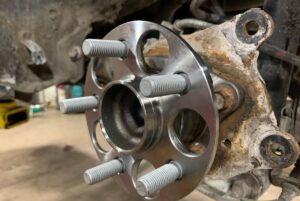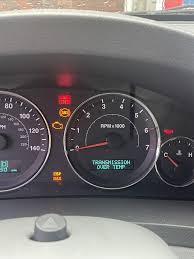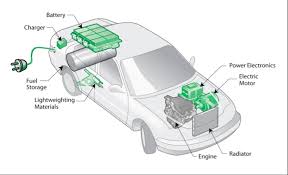What Does an Oil Change Do? A Complete Guide for Car Owners
An oil change is one of the most essential — and frequently recommended — services for your vehicle. But have you ever wondered what exactly happens during an oil change and why it’s so important?
In this article, we’ll explore:
- What an oil change does for your car
- Why motor oil matters
- Signs you need an oil change
- What happens if you skip oil changes
- How often you should change your oil
- DIY vs. professional oil changes
What Does an Oil Change Do?
An oil change involves draining the old, dirty oil from your engine and replacing it with fresh, clean oil. It also usually includes replacing the oil filter, which traps contaminants and prevents them from circulating through the engine.
Here’s what an oil change does for your car:
1. Lubricates Moving Engine Parts
Your engine contains many fast-moving metal parts, including pistons, crankshafts, and valves. Motor oil creates a thin, slippery film between these components to reduce friction.
Why it matters:
Without proper lubrication, parts grind against each other, generating excess heat, increased wear, and potentially catastrophic engine failure.
2. Reduces Engine Heat
Oil not only lubricates but also absorbs and dissipates heat generated by the engine. This helps maintain a stable operating temperature.
Why it matters:
Without oil, engine components can overheat, warp, or seize — leading to costly repairs.
3. Cleans Internal Engine Components
As oil circulates through the engine, it picks up dirt, carbon deposits, and metal particles. The oil filter traps most of these impurities, but over time, oil becomes saturated with contaminants and loses its cleaning ability.
Why it matters:
Clean oil helps prevent buildup (known as sludge) that can clog narrow oil passages and reduce engine efficiency.
4. Prevents Corrosion and Rust
Engine oil contains additives that help prevent oxidation and corrosion inside the engine block.
Why it matters:
Even trace amounts of water vapor or condensation can corrode engine components if not neutralized by the oil’s chemical properties.
5. Improves Fuel Efficiency and Performance
Fresh oil reduces internal resistance and friction, helping the engine run more smoothly and efficiently.
Why it matters:
Dirty oil increases engine drag, reducing fuel economy and responsiveness. A regular oil change can help maintain optimal gas mileage and acceleration.
Why Motor Oil Is So Important
Think of motor oil as the lifeblood of your engine. It circulates through the entire system, ensuring everything runs cleanly, quietly, and efficiently.
There are several types of motor oil:
- Conventional Oil: A refined petroleum-based oil, typically used in older vehicles.
- Synthetic Oil: Engineered for higher performance, better protection, and longer intervals.
- Synthetic Blend: A combination of synthetic and conventional oil for moderate protection.
- High-Mileage Oil: Designed for vehicles with over 75,000 miles, with additives to reduce leaks and wear.
The right oil for your car depends on your engine type, age, driving conditions, and manufacturer recommendations.
Signs You Need an Oil Change
Even if you don’t track your mileage precisely, your car may give you clues that it’s time for an oil change:
- Dashboard warning light (oil can symbol or “Change Oil Soon”)
- Dark, dirty oil (check the dipstick — clean oil is amber-colored)
- Loud engine noise or knocking
- Decreased fuel efficiency
- Oil smell inside the cabin
- Exhaust smoke or burning oil smell
If you notice any of these symptoms, don’t wait — check your oil level and schedule a service.
What Happens If You Don’t Change Your Oil?
Skipping oil changes is like ignoring the heartbeat of your engine. Here’s what can go wrong:
❌ Sludge Buildup:
Old oil thickens and forms sludge, which clogs engine passages and reduces oil flow.
❌ Increased Wear and Tear:
Lack of lubrication causes metal-on-metal contact, leading to accelerated wear.
❌ Overheating:
Without proper heat dissipation, your engine can overheat and suffer permanent damage.
❌ Engine Seizure or Failure:
In extreme cases, neglecting oil changes can lead to catastrophic engine failure — requiring a rebuild or full replacement.
How Often Should You Get an Oil Change?
There’s no one-size-fits-all answer, but common guidelines include:
- Every 3,000–5,000 miles for conventional oil
- Every 7,500–10,000 miles for synthetic oil
- Check your owner’s manual for manufacturer-specific intervals
Other factors that can affect oil change frequency include:
- Frequent short trips or stop-and-go traffic
- Extreme temperatures (hot or cold)
- Towing or hauling heavy loads
- Dusty or off-road driving conditions
Tip: Always check your oil level and condition regularly, even if you’re not due for a change yet.
DIY vs. Professional Oil Change
DIY Oil Change
Pros:
- Saves money
- Gives you control over oil and filter selection
- Good for basic car maintenance skills
Cons:
- Requires tools, time, and proper disposal of used oil
- Risk of over-tightening filter or incorrect oil type
- Messy and not ideal for every driver
Professional Oil Change
Pros:
- Quick and convenient
- Includes multi-point inspection (fluids, tires, belts, etc.)
- Technicians ensure correct oil type and proper torque
Cons:
- Slightly more expensive
- Upselling at some service centers (always ask what’s included)
Conclusion
An oil change might seem like a simple task, but it’s one of the most important things you can do to keep your car running smoothly and reliably. By refreshing the oil and filter, you’re protecting your engine from friction, heat, corrosion, and contaminants.
Whether you do it yourself or go to a professional like Nelson’s, sticking to a regular oil change schedule is one of the smartest habits a vehicle owner can adopt.
So, what does an oil change do?
It helps your engine breathe easier, run smoother, last longer — and ultimately saves you from major repair bills down the road.






